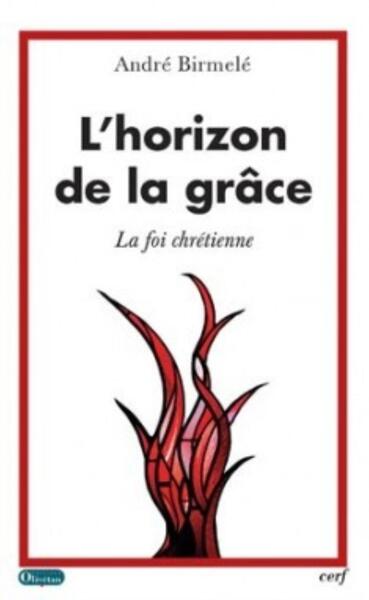- EAN13
- 9782204099615
- Éditeur
- Cerf
- Date de publication
- 22 août 2013
- Collection
- THEOLOGIE
- Nombre de pages
- 512
- Dimensions
- 23,5 x 14,7 x 2,6 cm
- Poids
- 738 g
- Langue
- fre
L'Horizon De La Grâce, La Foi Chrétienne
André Birmelé
Cerf
Prix public : 25,00 €
L'Évangile est une invitation à changer de perspective, d'horizon. En décidant de venir au monde par la Croix et la Résurrection de Jésus-Christ, Dieu propose aux hommes d'entrer dans l'horizon de la grâce : une orientation nouvelle, une dynamique qui donne sens à la vie. L'avenir appartenant à Dieu, le présent devient possible. Partant du témoignage biblique et revisitant les grands moments de l'histoire du christianisme, André Birmelé en présente les orientations majeures. La Révélation, la Parole de Dieu, la foi, le péché, Jésus-Christ, sa Croix et sa Résurrection, le Salut par la grâce, les Sacrements, l'Église... Les convictions chrétiennes fondamentales sont examinées tour à tour, présentées sans simplification mais dans un langage accessible, volontairement dégagé du détail des débats scientifiques. L'auteur montre aussi que maints sujets qui ont provoqué des divisions entre les Églises sont à présent le lieu d'une profession de foi commune, le fondement d'une diversité réconciliée. Il offre ici un ouvrage utile pour entrer dans l'intelligence de la foi, contribuant à mieux faire comprendre le message biblique de l'amour de Dieu pour les hommes, cette logique divine qui dépasse tout entendement. -- The Gospel invites us to adopt a new perspective, a new horizon. By deciding to come into the world via the Cross and the Resurrection of Jesus Christ, God offers man the opportunity to enter into the horizon of grace: to take a new direction, with a force that gives meaning to life. The future belongs to God, the present becomes possible. Starting with the Biblical testimony and recalling the high points of the History of Christianity, André Birmelé presents its principal orientations. Revelation, The Word of God, faith, sin, Jesus Christ, His Cross and Resurrection, Salvation through grace, the Sacraments, the Church... The basic Christian convictions are explored one by one, never resorting to simplification yet always in accessible terms, deliberately freed of the ins and outs of scientific debates. The author shows how many subjects that caused divisions between the Churches now form the basis of a shared profession of faith, the foundations of a diversity now reconciled. Contributing to a better understanding of the biblical message of God's love for mankind, the author brings us a useful book for those who wish to enter into the intelligence of the faith, that divine logic that is beyond all understanding.


















